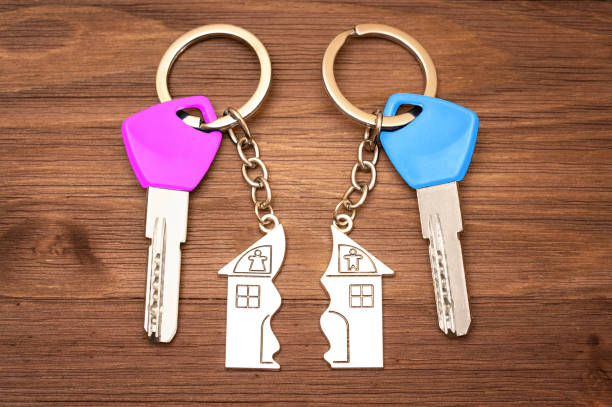To get exclusive control of a house, you have a few legal options. If the house is part of a divorce, you can ask the court for exclusive possession during the divorce proceedings. You’ll need to show why you need to stay there, like for safety reasons or if you’re taking care of kids.
Another way is to talk with the other owners or tenants and agree on a buyout. This means you pay them to leave so you can have the place to yourself. If there are people living there that you want out, like tenants or family, you can start eviction proceedings.
This involves following the rules and giving them proper notice. Sometimes, you might need to prove you legally own the house by showing documents like deeds or titles, especially if there’s a dispute.
How does exclusive possession differ from ownership?

Exclusive possession and ownership are related concepts but they have distinct differences:
Exclusive Possession
Exclusive possession refers to the right to occupy or use property exclusively, to the exclusion of others, for a specific period of time or under specific conditions. It does not necessarily imply ownership.
For example, in a rental agreement, the tenant typically has exclusive possession of the property for the duration of the lease. The tenant can use the property as if they were the owner, subject to the terms of the lease, but they do not own the property.
Exclusive possession can also be granted in other contexts, such as a license or easement, where someone is given the exclusive right to use a property for a particular purpose without owning it.
Ownership
Ownership, on the other hand, implies having legal rights and control over property, which typically includes the right to possess, use, transfer, and exclude others from the property.
When you own something, you have a bundle of rights that give you control over that thing. These rights are often described as the right to possess, use, enjoy, and dispose of the property.
Ownership is typically more comprehensive and enduring than exclusive possession. It represents the highest level of control and rights over a property.
What are common reasons for seeking exclusive possession?
Firstly, when you rent a house, you want to live there without anyone bothering you. This is called having exclusive possession. It means you can use the house without the landlord or anyone else disturbing you.
Secondly, businesses want to use their shops or offices without other businesses getting in the way. They need exclusive possession of their space so they can run their business smoothly.
Thirdly, when people create things like inventions or art, they want to own their ideas and creations so others can’t use them without permission. This is like having exclusive possession of their creativity.
Fourthly, sometimes people need to use someone else’s land for specific reasons, like getting to their own land. They want to make sure they can use it without problems. This is called having an easement.
Fifthly, when you borrow money, you might need to give something valuable as a promise you’ll pay it back. The lender wants to keep it safe until you pay them back. This is called having a security interest.
Sixthly, when people argue about who owns something, they might need to stay in control of it until the argument is settled. This is like having exclusive possession while they sort out the disagreement.
Seventhly, sometimes people just want a place to relax or have fun, like a holiday home or a special vehicle. They want to make sure it’s only theirs to use. This is like having exclusive possession for their personal enjoyment.
Lastly, when people feel unsafe because of someone else, they might need a special order to keep that person away from their home. This is called having exclusive possession for safety reasons.
How can exclusive possession of a house be legally obtained?

Exclusive possession of a house can be legally obtained through various means, primarily through rental or lease agreements, ownership, or court orders. Here’s how each method works:
Rental or Lease Agreement
The most common way to obtain exclusive possession of a house is by entering into a rental or lease agreement with the owner (landlord) of the property.
In this arrangement, the tenant pays rent to the landlord in exchange for the exclusive right to occupy and use the property for a specified period, typically outlined in the lease agreement.
During the lease term, the tenant has exclusive possession of the house, subject to the terms and conditions of the lease.
Ownership
Another way to gain exclusive possession of a house is by purchasing it outright. When you buy a house, you become the owner and have exclusive possession of the property. You can use, occupy, and control the house as you wish, subject to any applicable laws, regulations, or homeowners’ association rules.
Court Orders
In certain situations, exclusive possession of a house can be obtained through legal proceedings and court orders. For example, in cases of domestic violence or harassment, a person may seek a protective order granting them exclusive possession of the family home, effectively requiring the abusive or harassing party to leave the premises.
Additionally, in property disputes or divorce proceedings, a court may grant exclusive possession of the house to one party while the legal matters are being resolved.
FAQ’s
What is the exclusive possession or control of anyone thing?
Exclusive possession or control refers to having sole authority or ownership over something.
What is a temporary possession?
Temporary possession is the right to use or control something for a limited period of time.
Can you force your spouse to leave the marital home in PA?
Yes, in certain circumstances, you can seek a court order to force your spouse to leave the marital home in Pennsylvania.
What is an order for possession in PA?
An order for possession in Pennsylvania is a legal directive from the court granting one party the exclusive right to occupy the property, often during divorce proceedings.
What is the exclusive use of the marital home in Michigan?
Exclusive use of the marital home in Michigan typically refers to one spouse having sole occupancy and control over the home during divorce proceedings.
Final Words
Getting exclusive possession of a house is really important for different reasons. It means having control of the house, even if you don’t own it completely. People might want it because of issues like divorce or disagreements with others.
To get it, you can talk with others or get help from a lawyer. Remember to gather papers, ask for advice, and follow the rules. It might be tough, but think about how it affects your feelings and relationships. Always ask a grown-up for help, and try to solve things without fighting.
